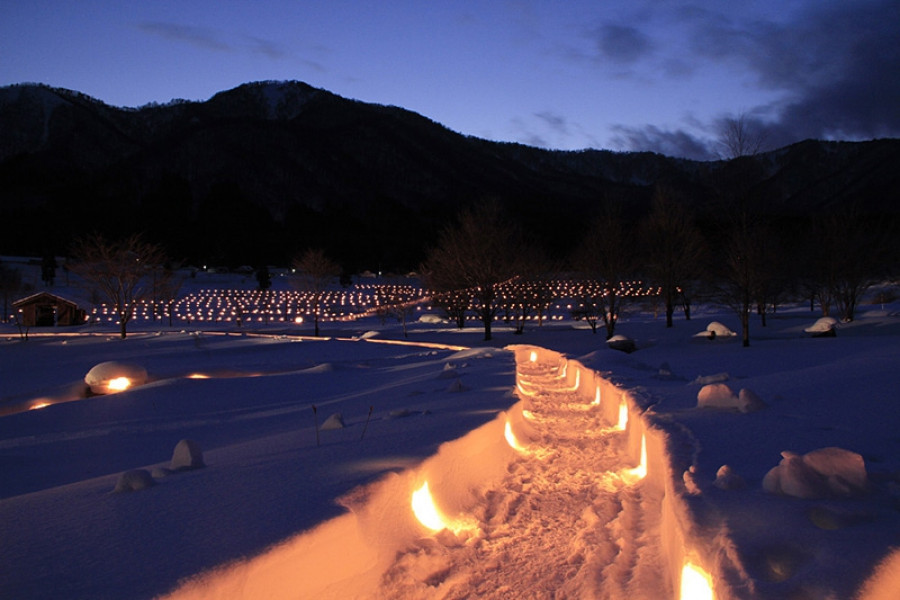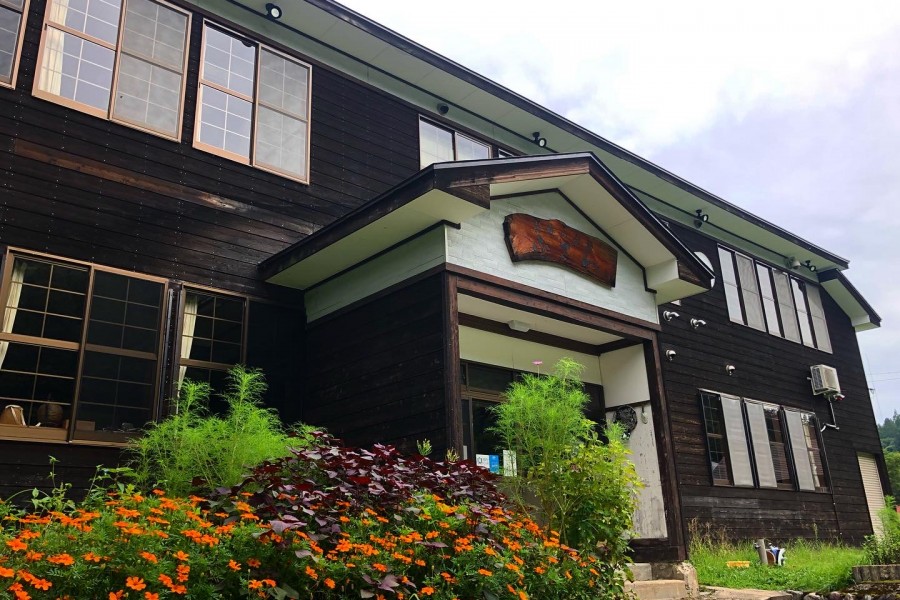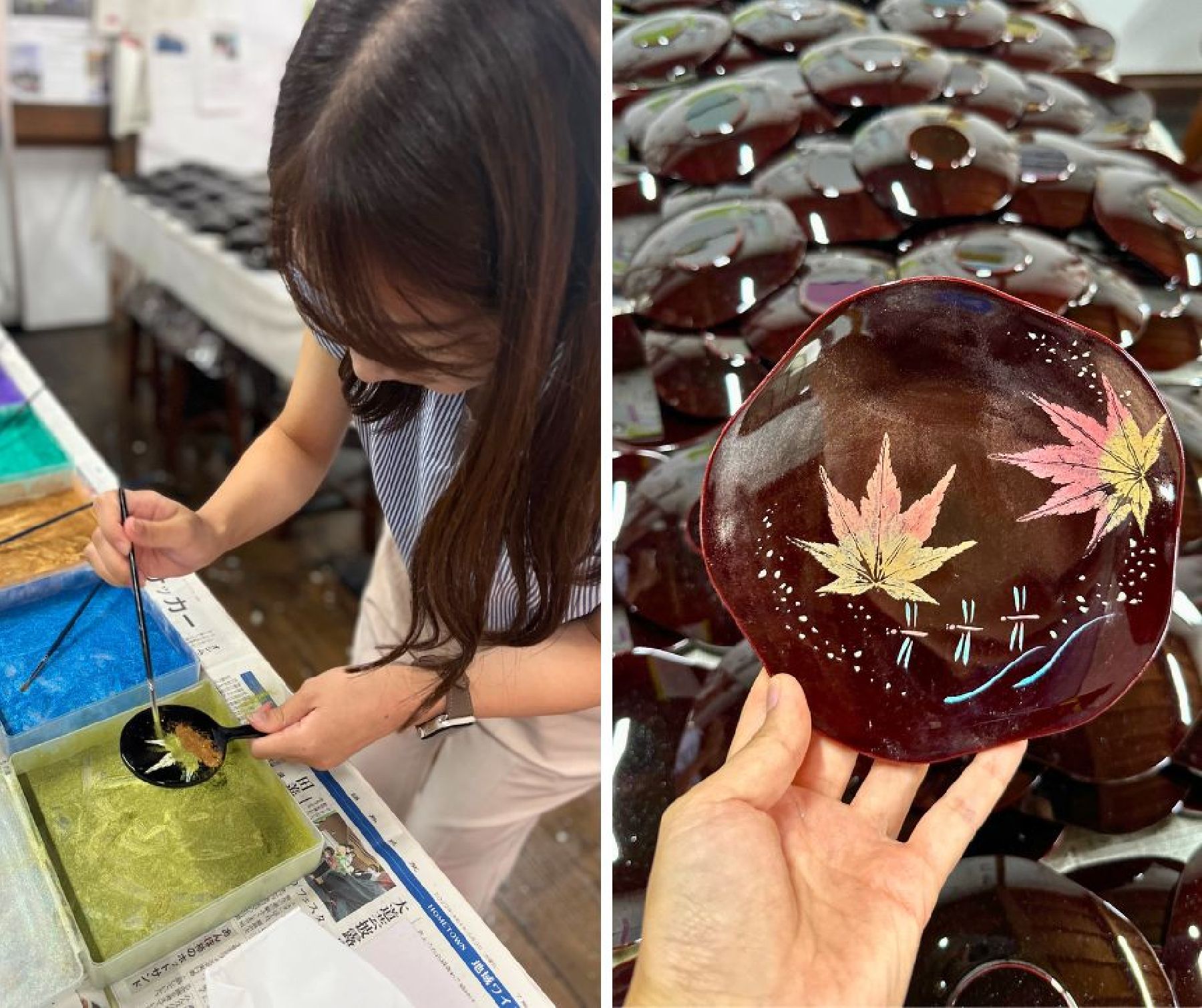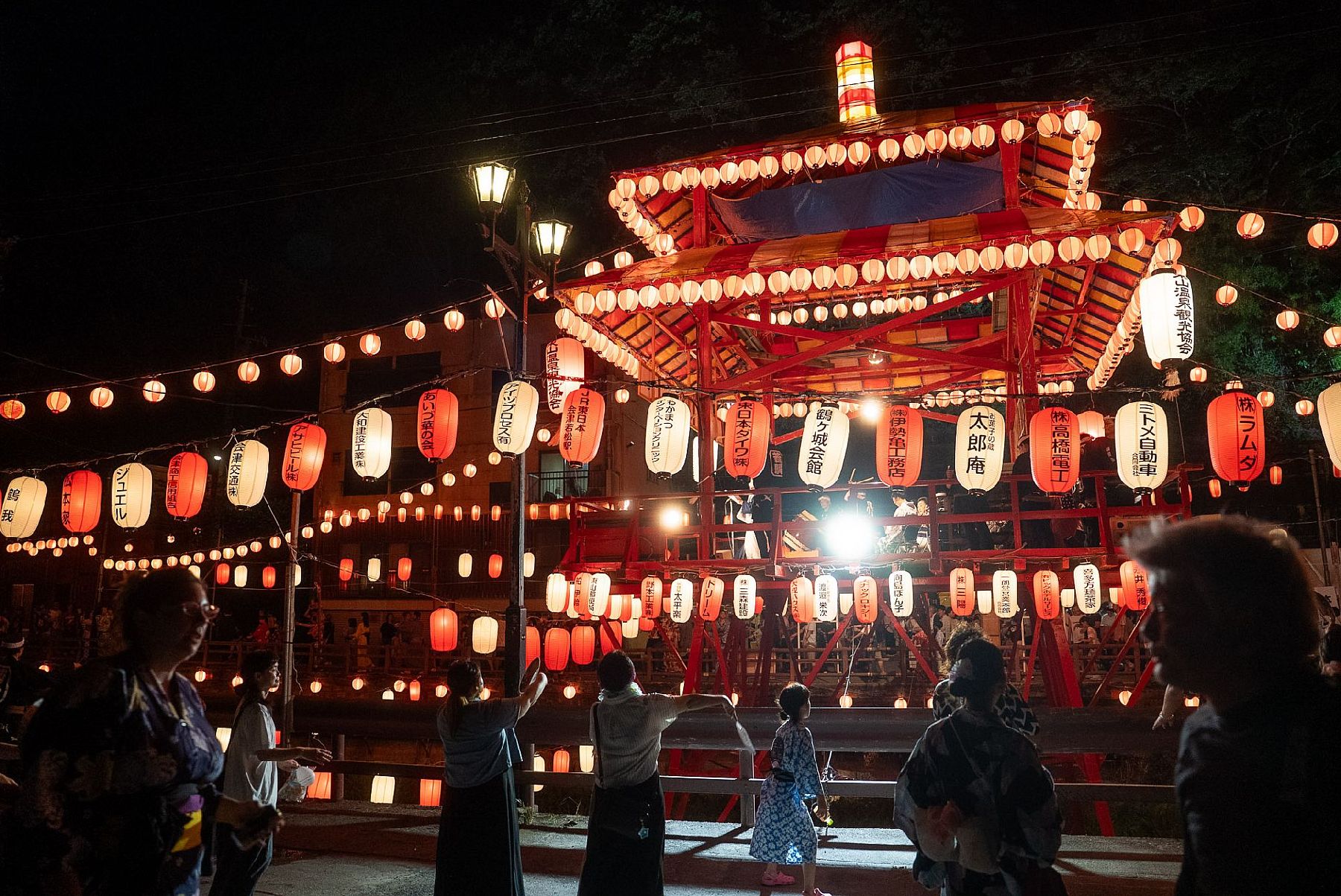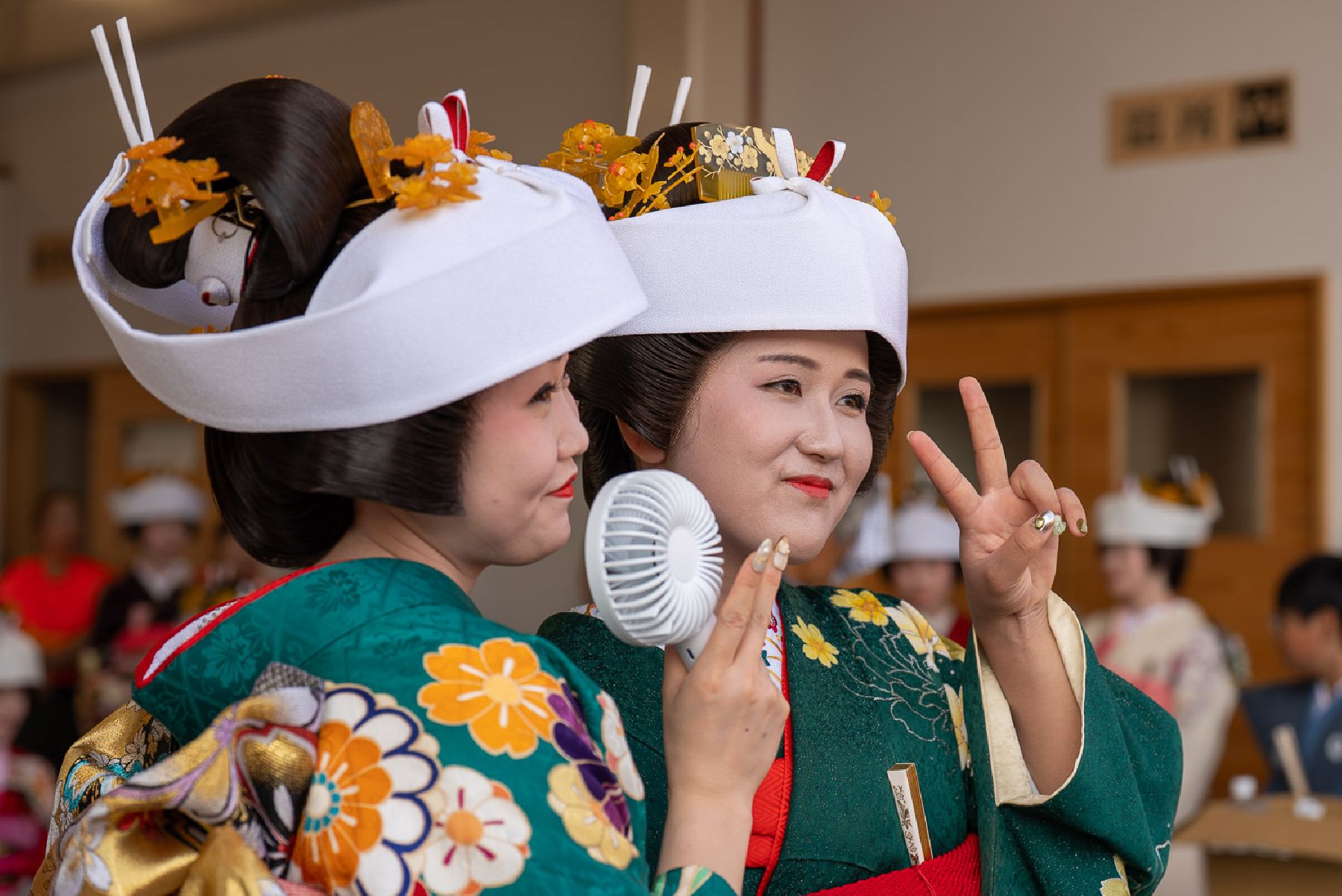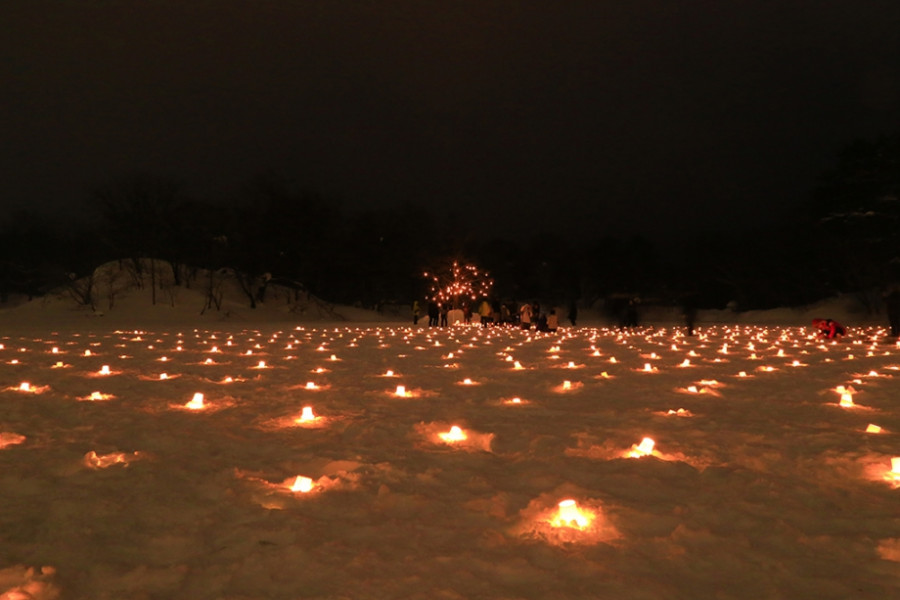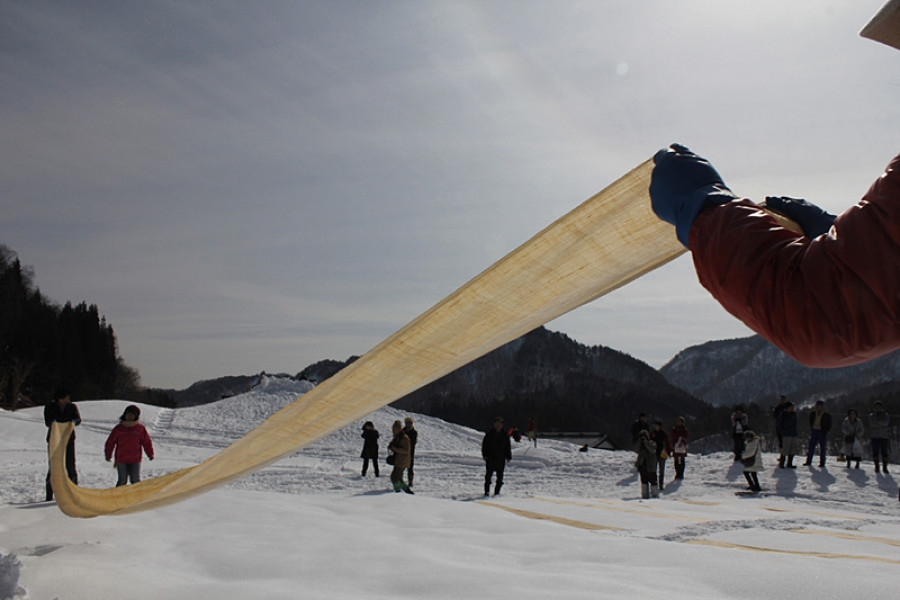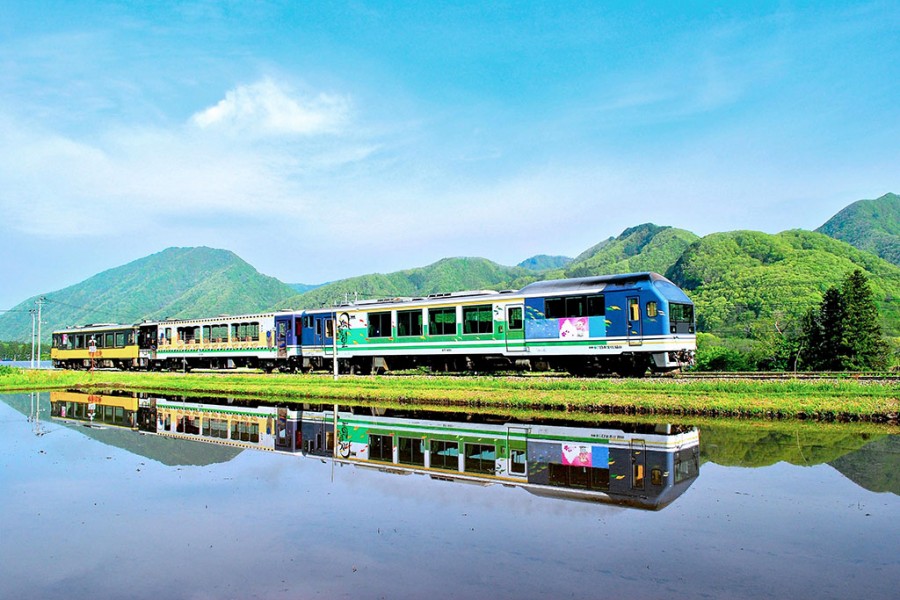
Ride the Oza-Toro-Tembo Train
The Oza-Toro-Tembo Train is a limited-service sightseeing train which is operated during selected days of the peak tourist seasons. The train has three carriages - the oza carriage (which has a tatami-floor), the torokko (tram) carriage, and the tembo (observation deck) carriage. Stretch out and relax in the tatami carriage with its sunken kotatsu (heated table) in autumn, take in Aizu's nature and air from the tram carriage, and revel in the fantastic scenery that await you through the expansive windows of the observation deck carriage. The train runs along the Aizu Railway tracks, meaning you can hop off at various points to visit places such as Ouchi-juku (a 15 minute taxi ride from Yunokami Onsen Station), and To-no-Hetsuri Crags, among others. For information about when this train runs this year, please check out this link (Japanese).
